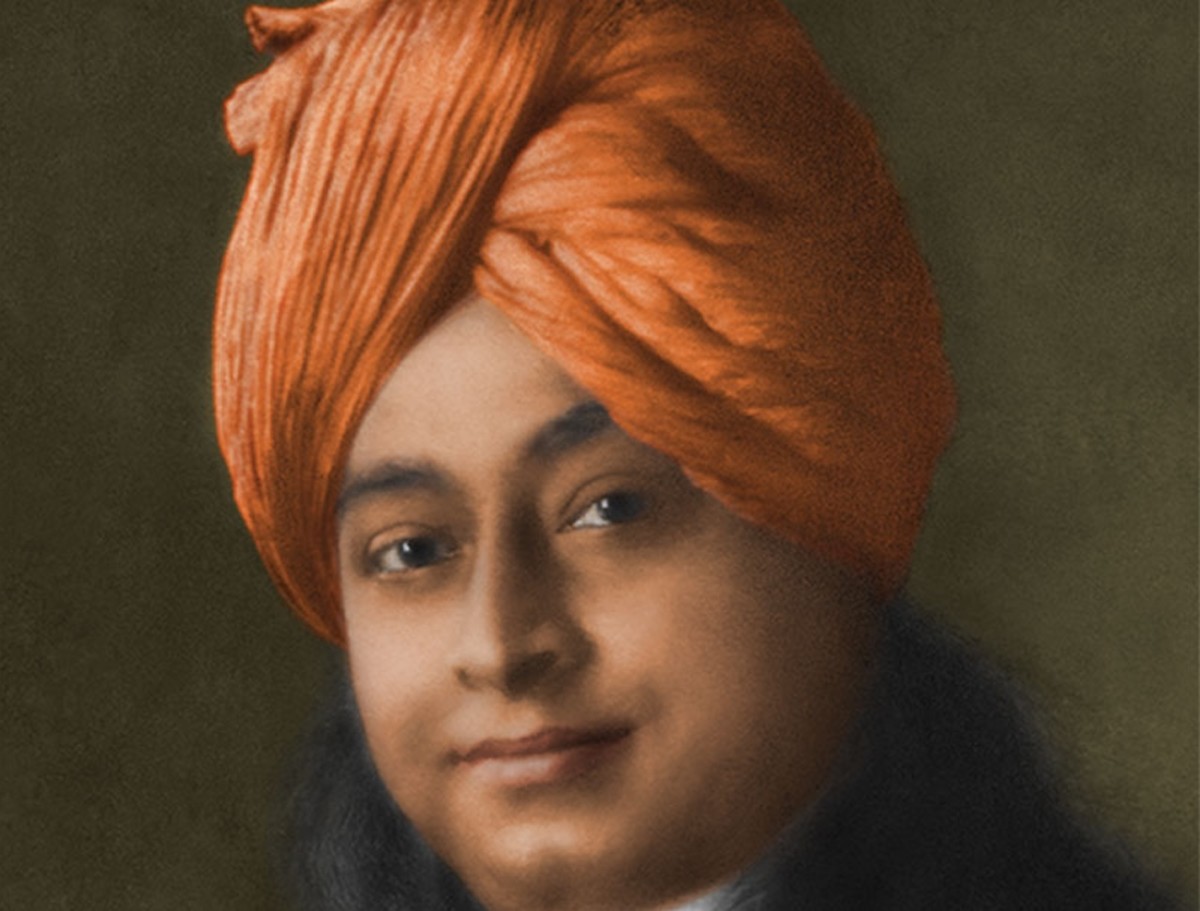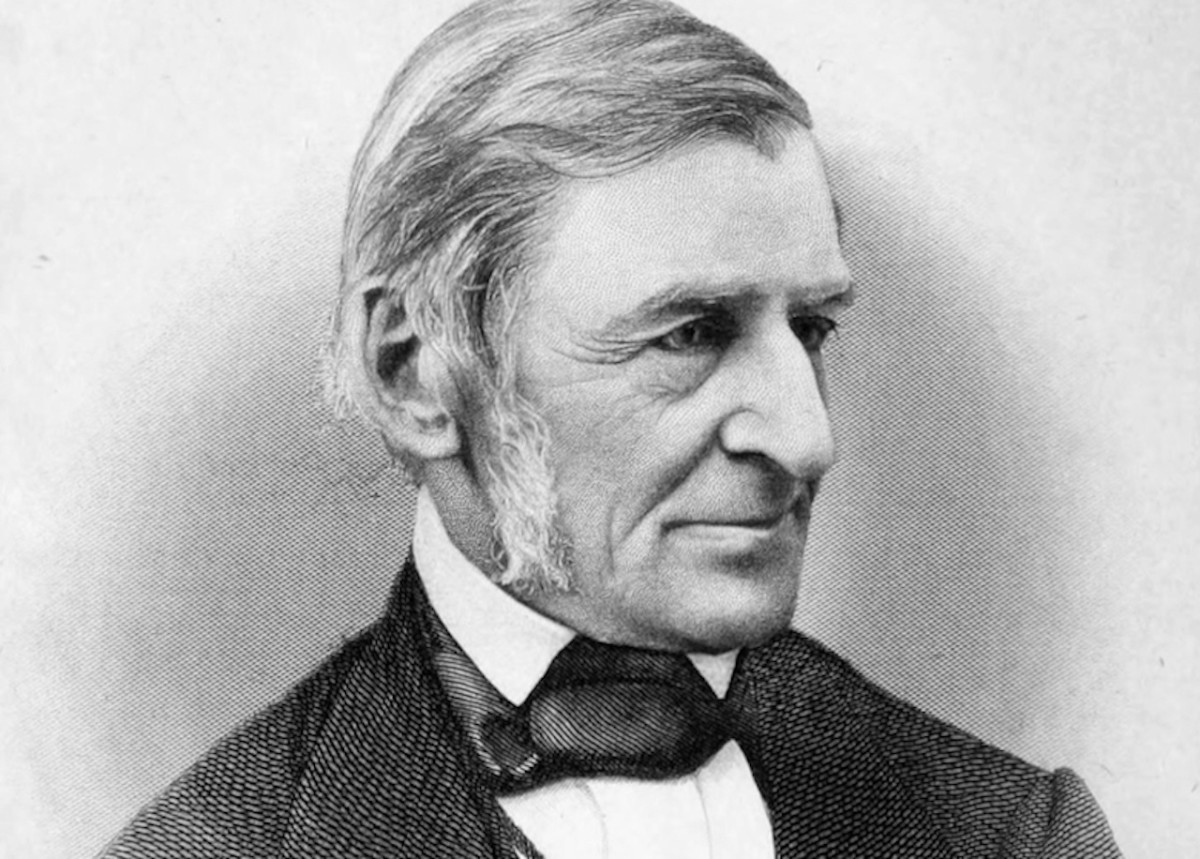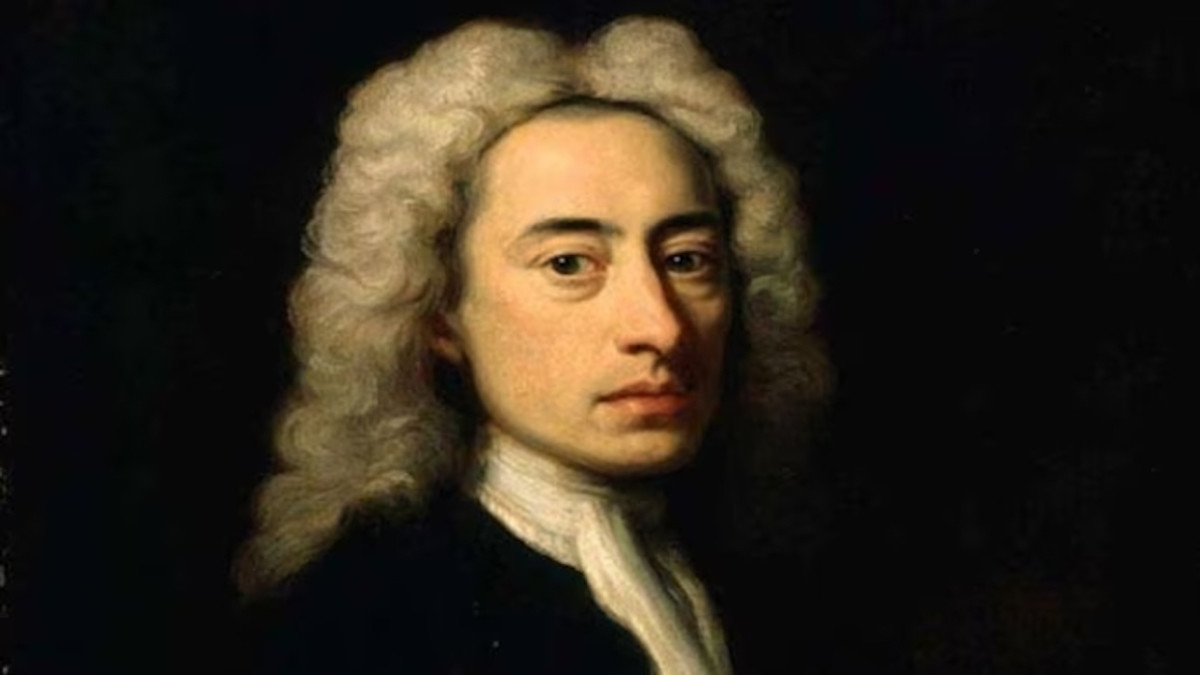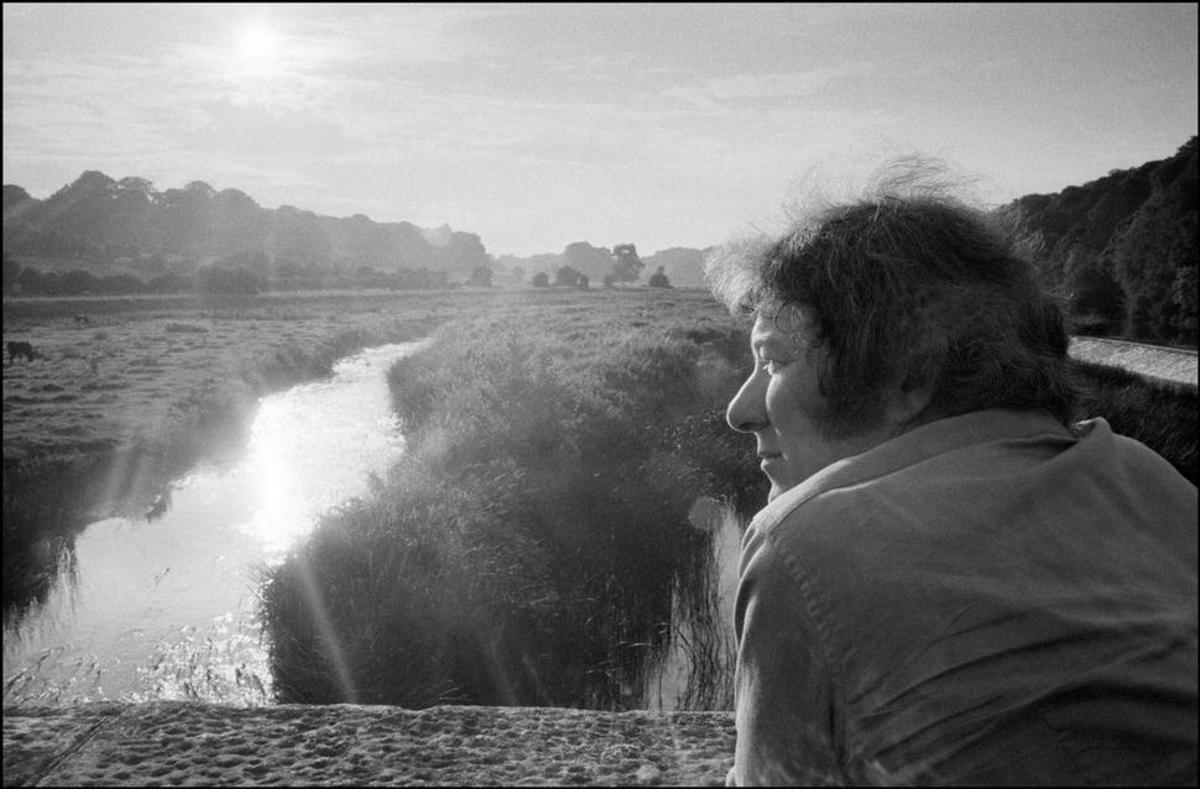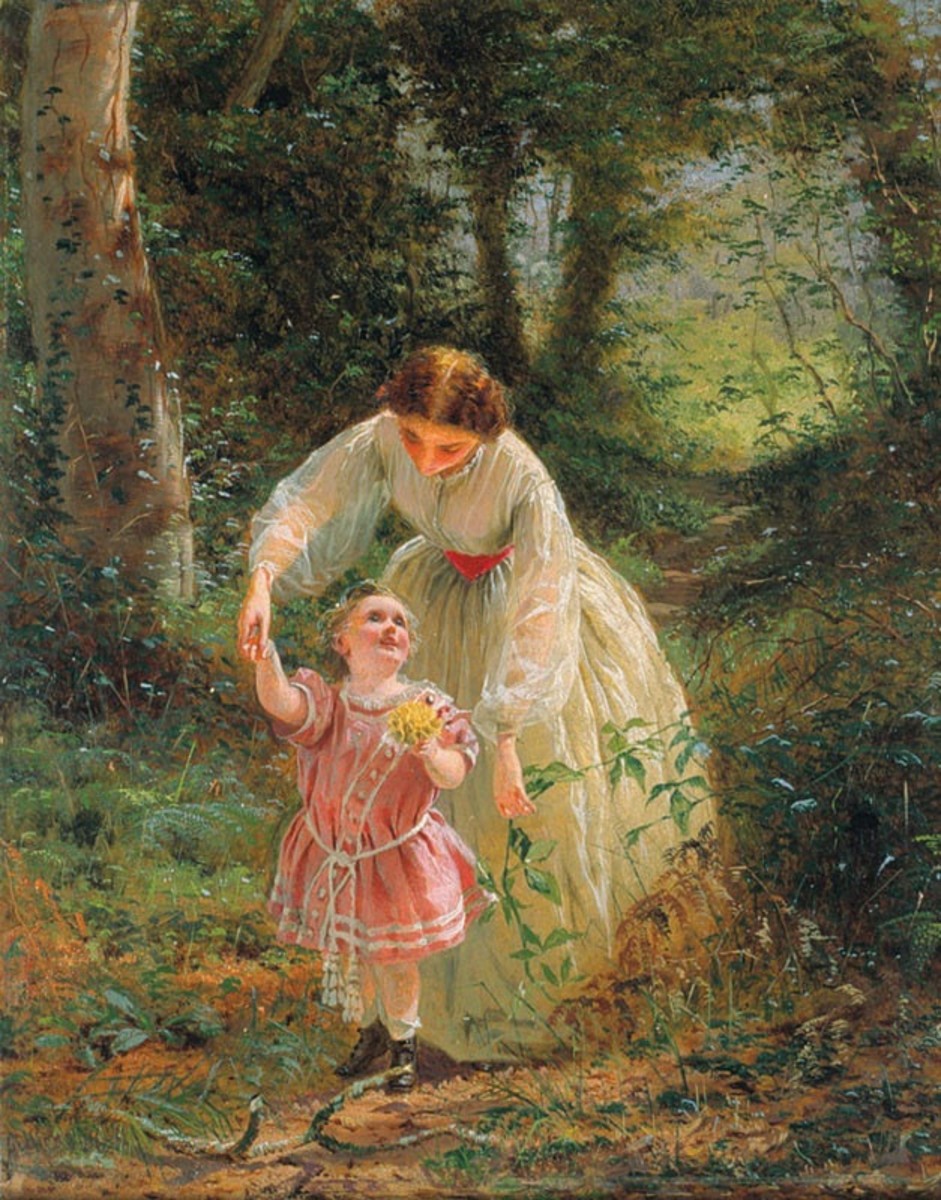Banjo Paterson's "Clancy of the Overflow"
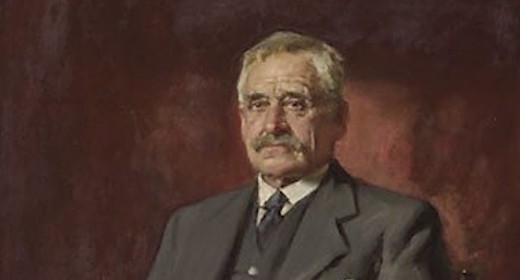
Introduction and Excerpt from Banjo Paterson's "Clancy of the Overflow"
The speaker in A. B. "Banjo" Paterson's "Clancy of the Overflow" is a city-dweller, who thinks he would like to change his life and become a cowboy in the outback. The speaker iss prompted to dramatize and romanticize that life after he met a chap named Clancy.
The poem features eight ballad-form quatrains, each with the basic end-rime scheme, ABCB. The first and third lines of each quatrain feature an internal rime, in addition to the end-rimes. The following uses the first stanza to exemplify the internal and end-rime schemes:
A . . . A letter . . . better
. . . . . B . . . . . . . . ago
C . . . C knew him . . . to him
. . . . . B . . . . . . . . overflow
The lines are long with a jaunty rhythm, making the poem ripe for turning into a song.
Excerpt from Banjo Paterson's "Clancy of the Overflow"
I had written him a letter which I had, for want of better
Knowledge, sent to where I met him down the Lachlan, years ago,
He was shearing when I knew him, so I sent the letter to him,
Just "on spec", addressed as follows: "Clancy, of The Overflow".
And an answer came directed in a writing unexpected,
(And I think the same was written in a thumbnail dipped in tar)
'Twas his shearing mate who wrote it, and verbatim I will quote it:
"Clancy's gone to Queensland droving, and we don't know where he are."
To read the rest of the poem, please visit "Clancy of the Overflow" at poeticous.
Commentary on Banjo Paterson's "Clancy of the Overflow"
People who reside in large cities from time to time muse on the idea of being or becoming a country dweller. Country folk do the same, but it seems less often than the city-dweller, who likes to romanticize the life of their rustic fellows.
First Stanza: A Letter to Clancy
I had written him a letter which I had, for want of better
Knowledge, sent to where I met him down the Lachlan, years ago,
He was shearing when I knew him, so I sent the letter to him,
Just "on spec", addressed as follows: "Clancy, of The Overflow".
The first quatrain remains very simple, offering a mere tease regarding the drama that will be unfolding. The speaker reports that he wrote a letter to Clancy with simple address, "Clancy, of the Overflow." The speaker had met Clancy while the latter was shearing sheep.
Second Stanza: Receives a Response
And an answer came directed in a writing unexpected,
(And I think the same was written in a thumbnail dipped in tar)
'Twas his shearing mate who wrote it, and verbatim I will quote it:
"Clancy's gone to Queensland droving, and we don't know where he are."
The speaker receives a response to his letter that revealed no one knew where Clancy was at present, although he had gone to Queensland droving. The speaker adds the colorful detail that the letter appeared to have been "written with thumb-nail dipped in tar."
Third Stanza: Wild Imaginings
The speaker then begins his wild erratic fancy, envisioning Clancy driving his herd singing and enjoying kind of peaceful "pleasures" that city-dwellers, such as the speaker himself, never experience. The speaker is now off to musing on those supposed pleasures of living a rustic life.
Fourth Stanza: Natural Beauties
The speaker imagines Clancy with his friends who greet him with their kindly voices. He hears the murmur of the breezes. He sees a beautiful river and observes the splendor of the sunlit plain extending for miles. And, of course, Clancy enjoys seeing "the wondrous glory of the everlasting stars." All of these natural beauties elude the city-dweller.
Fifth Stanza: Bemoaning City Life.
The city-dwelling speaker then plainly bemoans his own lot as he sits in his dingy little office where only a sliver of sunlight is able to penetrate. The air is polluted and floats into the office through the window, "spread[ing] its foulness over all."
Sixth Stanza: Enduring City Noise
Instead of Clancy's pleasant sounds of lowing cattle, the poor speaker's ears are accosted by the metallic, screeching noise of "tramways and the buses." He also must endure hearing the foul language of children fighting in the streets.
And there is "the ceaseless tramp of feet." Hearing so many people rushing hither and yon also annoys the speaker as he continues to endure city life.
Seventh Stanza: Stuffed in a Small Place
So many people hurrying here and there, their "pallid faces haunt" the speaker. They seem to be stuffed into the small space of the city as they shoulder one another in the rush and nervous haste.
He decries that the fact that city dwellers in their hurry to get to work have not time for other endeavors. The speaker feels that such a rushing madness stunts the growth of the people who have no time for leisure; to them leisure would be considered a waste of time.
Eighth Stanza: The Grass Is Always Greener
Finally, the speaker admits that he prefers to believe that he would like to change places with Clancy. The speaker would like to be out there herding those animals in the outback "where the seasons come and go."
He would like to let Clancy do his "cashbook" work, but he figures that job would probably not be well suited to the outback cowboy.
Toward an Australian National Identity
The notion that a nation can have an identity is absurd, and the question of such an identity likely arises from the current emphasis on identity politics/political correctness, which has pushed aside genuine literary studies.
Instead of focusing on a literary work’s development, its engagement with humanity in its quest for truth, beauty, and love, or its returning to the human heart/mind its experiences, identity-crazed activists seek to slander groups that they label as their oppressors.
A literary work’s first job is to enlighten the reader by its delicate use of literary devices in order to create a parallel world from the material of the real world. It seeks to share genuine experiences heartfelt by the creative writer in order to connect humanity, not divide it.
The sad, wide-spread intrusion of identity studies has diminished literary studies, making it no more than a pit of anguish wherein victims decry their lot as they search for ways to torment their supposed tormenters.
Looking for an Australian identity, the searchers often land upon the notion of diversity of "the bush" vs "urban life." Notice how unoriginal such divisions are! That same old dichotomy has existed ever since the first city was formed.
The British Romantics chose to glorify bucolic life, which would correlate with "the bush life" in Australia. So much for an Australian identity.
Regarding Henry Lawson’s take on "the bush life," opposing the notion of romanticizing such as life, Lawson allows his speaker in "Ballad of the Drover" to demonstrate how that life can be quite treacherous, as he allows his cowboy (drover) to die on his way back home.
Banjo Paterson’s "Clancy of the Overflow" has gained audiences worldwide. The theme of city vs country or urban vs bush life is as old as time. Humanity as it crowds into cities find advantages and disadvantaged to both lifestyles, the subject of better lifestyles continues to attract attention.
Both Henry Lawson and A. B. "Banjo" Paterson have created art that gives a flavor of their Australian location but still manages to focus on the heart of the issues they chose to address. They have left partisan bickering about victimhood behind and thus have created poems that the whole world can treasure.
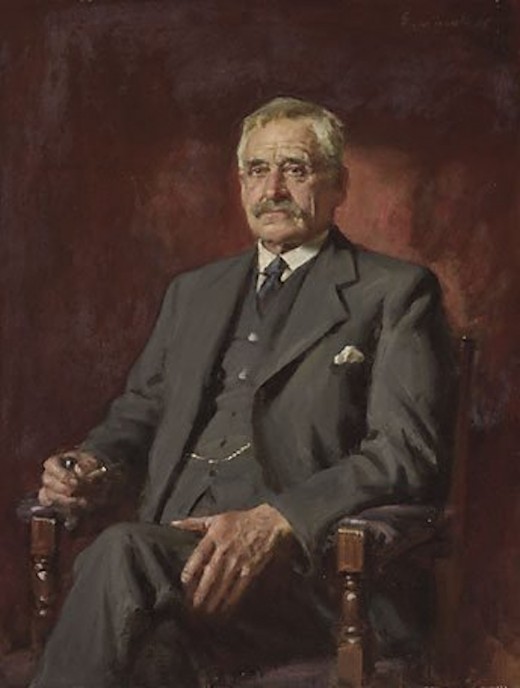
Commentaries on Other Cowboy Poems
- David Althouse’s "Cowboy Christmas Carol" A "hard-bitten ol' cowpoke" experiences a mystical experience that changes his heart in the Christmas ballad. He will carry his new change of heart into his daily cow poking life as he honors "the Great Trail Boss in the Sky."
- S. Omar Barker's "A Cowboy’s Christmas Prayer" S. Omar Barker’s Christmas poem "A Cowboy’s Christmas Prayer" features a humble cowpoke, who is not accustomed to praying but is offering his heart-felt supplication at Christmas time. As he prays, he reveals the qualities and issues of his life that are most important to him.
- David Althouse’s "How Pecos Bill Saved Christmas" The legendary hero, Pecos Bill, gargling with nitroglycerin and chewing on habanero peppers, saved Christmas one year. Accompanied by his horse, Widow Maker, Pecos Bill performs his extreme acts throughout cowboy folklore.
- S. Omar Barker's "Three Wise Men" S. Omar Barker's Christmas poem dramatizes a tale about three lonesome cowboys camped far out on the prairie. Because they are so far from home, they hanker to be celebrating Christmas in the tradition way.
- E. A. Brininstool's "Christmas Week in Sagebrush" E. A. Brininstool’s "Christmas Week in Sagebrush" dramatizes the activities offered in the little town of Sagebrush as the cow pokes, their families, and friends do some shopping and spending.
- Henry Lawson's "Ballad of the Drover" In Henry Lawson’s "Ballad of the Drover," the sound of camp gear clanging as the horses thunder along becomes a melancholy image and refrain.
This content is accurate and true to the best of the author’s knowledge and is not meant to substitute for formal and individualized advice from a qualified professional.
© 2025 Linda Sue Grimes

